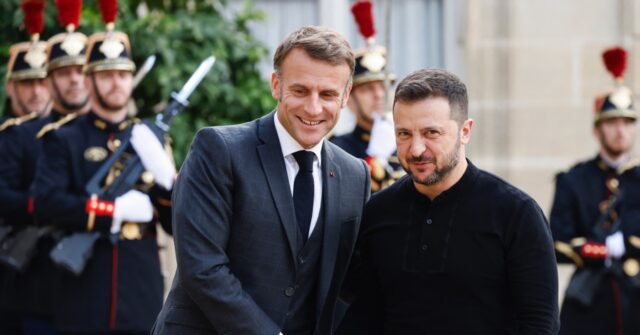French President Emmanuel Macron is spearheading efforts to establish a European peacekeeping force of up to 100,000 troops in Ukraine, contingent upon a ceasefire agreement facilitated by incoming U.S. President Donald Trump. During a recent meeting that coincided with the reopening of the Notre Dame Cathedral, Trump conveyed to Macron and Ukrainian President Volodymyr Zelensky that U.S. troops would not participate in ensuring Ukraine’s safety following a peace agreement with Moscow. This position has prompted Macron to rally European partners for troop commitments, irrespective of Ukraine’s potential NATO membership.
A report from Reuters highlights Macron’s strategy as he emphasizes the importance of a European-led military presence in the region. He is quoted by a senior European official stating that even with a NATO security guarantee, the operational backbone must come from European forces, suggesting that military planners are already formulating proposals for the European leaders’ consideration. This proactive approach reflects a necessity for Europe to assume responsibility in maintaining stability in Ukraine in the absence of U.S. involvement.
The prospect of deploying around 100,000 troops, as suggested by former Austrian military planner Franz-Stefan Gady, raises concerns about the strain such a move could place on European land forces. Gady notes that to achieve this troop level, European nations might need to decrease their military presence in other areas, such as Bosnia and Kosovo. This shift would highlight the challenges Europe faces in balancing its commitments, particularly given the opposition from Moscow regarding Ukraine’s NATO aspirations, which it considers a red line.
With NATO membership for Ukraine appearing unlikely for the foreseeable future, Western powers—including Germany, Hungary, and the U.S.—are expressing apprehension about admitting a nation engaged in military conflict. As such, alternative security guarantees are becoming increasingly crucial to incentivize Ukraine to engage in negotiations. Following a meeting with Macron, Zelensky reiterated the necessity for “reliable guarantees” as essential for achieving a lasting peace. He emphasized the continuation of discussions around Macron’s initiative for a peacekeeping force in Ukraine.
While there is a shared vision among Macron and Zelensky regarding the need for peacekeeping forces, the willingness of major European players to participate remains uncertain. Polish Prime Minister Donald Tusk has expressed skepticism about the feasibility of such a mission after discussions with Macron. In contrast, German Defence Minister Boris Pistorius acknowledged Germany’s potential involvement in peacekeeping efforts, though he refrained from providing any specific commitments regarding troop deployment.
In summary, as European leaders navigate the complex geopolitical landscape surrounding Ukraine, the issue of how to maintain stability in the region post-conflict remains critical. Macron’s initiative to form a European peacekeeping force reflects a broader acknowledgement that Europe must step up in the absence of American military support. However, the negotiations surrounding troop commitments and the challenges of prioritizing military resources across the continent will determine the viability and effectiveness of any peacekeeping efforts in Ukraine.

